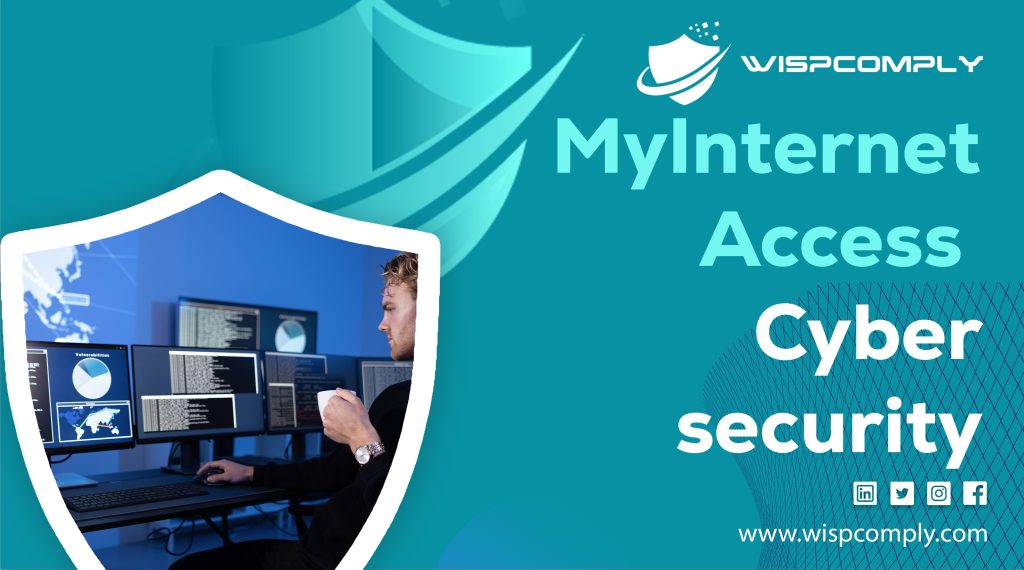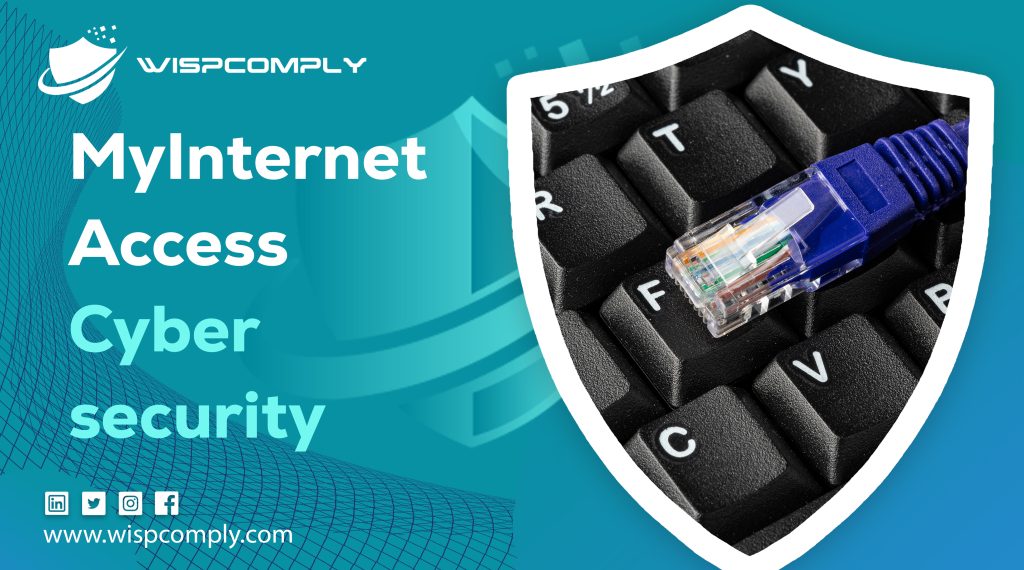
Table of Contents
MyInternetAccess Cybersecurity: How to Stay Safe Online
We live in a world where almost everything is connected to the internet—from banking and shopping to chatting with friends or running a business. But as our online lives grow, so do the risks. Every day, hackers are getting smarter, and cyber threats are becoming more common.
That’s where MyInternetAccess Cybersecurity comes in. It’s designed to help you stay safe online with secure, reliable tools that protect your privacy and personal information. Whether you’re an individual browsing social media or a small business handling sensitive data, knowing how to protect yourself is no longer optional—it’s a must.
In this guide, we’ll walk you through today’s biggest online threats, how cybercriminals trick people, smart safety habits, and how MyInternetAccess can give you a strong layer of protection. Let’s get started!
Understanding Cybersecurity Threats
Let’s start by looking at what dangers are out there. Knowing what you’re up against is the first step in staying safe.
- Malware: These are nasty programs like viruses, ransomware, or spyware that sneak into your device to steal or damage your data.
- Phishing Scams: Ever get a suspicious email asking you to “verify your account”? That’s phishing. These scams trick you into giving away personal info.
- Man-in-the-Middle (MITM) Attacks: Hackers can secretly intercept your messages or data while it travels between you and a website.
- DDoS Attacks: These attacks flood websites with traffic to make them crash. They often target businesses and websites with weak security.
- Identity Theft & Data Breaches: Hackers steal your personal info—like Social Security numbers or bank details—and use it for fraud.
How Cybercriminals Target Users
Cybercriminals often rely on simple tricks to break into your digital life.
- Weak Passwords: “123456” is still one of the most used passwords. Don’t be that person.
- Unsecured Wi-Fi: Public Wi-Fi in cafes or airports is a goldmine for hackers.
- Fake Websites & Ads: Some sites look real but are designed to steal your info. Clicking on a shady ad? Big risk.
- Social Media Scams: Scammers often pretend to be friends or companies to get you to click or share personal details.
Real-World Examples of Cyber Attacks
Cyber attacks aren’t just stuff you hear about in movies—they happen all the time.
- In recent years, large companies like Target, Equifax, and even hospitals have faced major data breaches.
- Millions of people had their private info exposed.
- For individuals, this could mean stolen bank logins, ruined credit scores, or worse.
Essential Cybersecurity Best Practices
Here are some essential cybersecurity best practices:
Strong Password Management
Passwords are like the keys to your digital house. Here’s how to keep them strong:
- Create long, unique passwords for each account—avoid using your pet’s name or “password123.”
- Use a password manager to remember them for you.
- Turn on multi-factor authentication (MFA) wherever possible. This adds an extra step to log in—like a text code—making it much harder for hackers.
Secure Browsing Habits
Browsing the internet? Don’t let your guard down.
- Watch out for phishing emails with urgent or strange messages.
- Always look for the lock symbol (HTTPS) in your browser bar before entering personal info.
- Use tools like ad-blockers and anti-tracking extensions to stay private.
Keeping Software and Devices Updated
Old software is like an open door to hackers.
- Keep your phone, computer, and apps updated regularly.
- Turn on automatic updates so you don’t forget.
- Don’t ignore your smart home devices either—like security cameras or smart TVs. These need protection too.
Safe Use of Public Wi-Fi
Free Wi-Fi is tempting, but it comes with risks.
- Hackers can easily spy on your activity on unsecured networks.
- Use a VPN like MyInternetAccess VPN to encrypt your data.
- Avoid checking bank accounts or shopping online on public Wi-Fi.
Advanced Protection Strategies
Using a Reliable Antivirus & Firewall
A strong antivirus is like a guard dog for your device.
- Use trusted antivirus software like Norton, Bitdefender, or Malwarebytes.
- Make sure your firewall is turned on—it acts like a barrier between your device and the internet.
Encrypting Sensitive Data
Encryption scrambles your data so only you can read it.
- Use full-disk encryption tools like BitLocker (for Windows) or FileVault (for Mac).
- For messaging, go with encrypted apps like Signal or WhatsApp.
Regular Backups
Don’t wait until your data is gone to think about backups.
- Use a mix of cloud and local backups.
- Set up automatic backups so you’re always covered.

Monitoring for Suspicious Activity
Stay alert to signs of a breach.
- Use credit monitoring services to get alerts if someone tries to open accounts in your name.
- Check sites like Have I Been Pwned? to see if your info was part of a data leak.
MyInternetAccess Security Features
So how can MyInternetAccess Cybersecurity actually help you stay safe?
Here’s what makes it a smart choice:
- Secure, high-speed internet connections that keep your activity smooth and private.
- A built-in VPN to hide your IP and protect your identity.
- Automatic blocking of malware and phishing sites before you can even click.
- Friendly customer support to help with any online safety concerns.
Whether you’re streaming, gaming, shopping, or running a business, MyInternetAccess is designed to protect your digital world.
Cybersecurity for Families & Businesses
The following the cybersecurity for families and businesses:
Protecting Children Online
Kids are online more than ever—on phones, tablets, and gaming devices.
- Use parental control tools to filter content and monitor screen time.
- Teach kids about online safety, like not talking to strangers or sharing personal info.
Securing Home Networks
Your Wi-Fi network can be a gateway for hackers.
- Change your router’s default password—the factory settings are easy to find online.
- Set up a guest network for visitors to keep your main network private.
Cybersecurity for Small Businesses
Running a business? You’re a target too.
- Train employees to spot phishing emails and use strong passwords.
- Set up secure remote work policies—use VPNs, protect devices, and control access to sensitive files.
Conclusion
Staying safe online doesn’t have to be complicated—but it does have to be consistent. From using strong passwords to browsing safely and keeping your devices updated, every step you take builds a stronger shield against cyber threats.
MyInternetAccess Cybersecurity offers a smart, all-in-one solution to help you browse, stream, and work safely. With tools like built-in VPN, malware protection, and top-notch customer support, it’s more than just internet—it’s peace of mind.
And if you want even more control and compliance support, we recommend checking out WispComply. It’s perfect for families, freelancers, and businesses who need that extra layer of digital security and data protection.
FAQs
1: What is MyInternetAccess Cybersecurity?
It’s a secure internet solution that includes VPN protection, malware blocking, and privacy tools to help you stay safe online.
2: Why is public Wi-Fi dangerous?
Public Wi-Fi often lacks security, making it easy for hackers to intercept your data. Always use a VPN when using free networks.
3: How can I tell if a website is safe?
Look for “https://” in the URL and a padlock symbol. These show the site is using encryption to protect your data.
4: What’s the best way to protect my kids online?
Use parental controls, talk to your children about safe internet use, and monitor the apps and sites they use regularly.
5: Do small businesses really need cybersecurity?
Yes! Many small businesses are targets for cybercrime because they often lack strong defenses. Cybersecurity helps protect data, finances, and trust.
